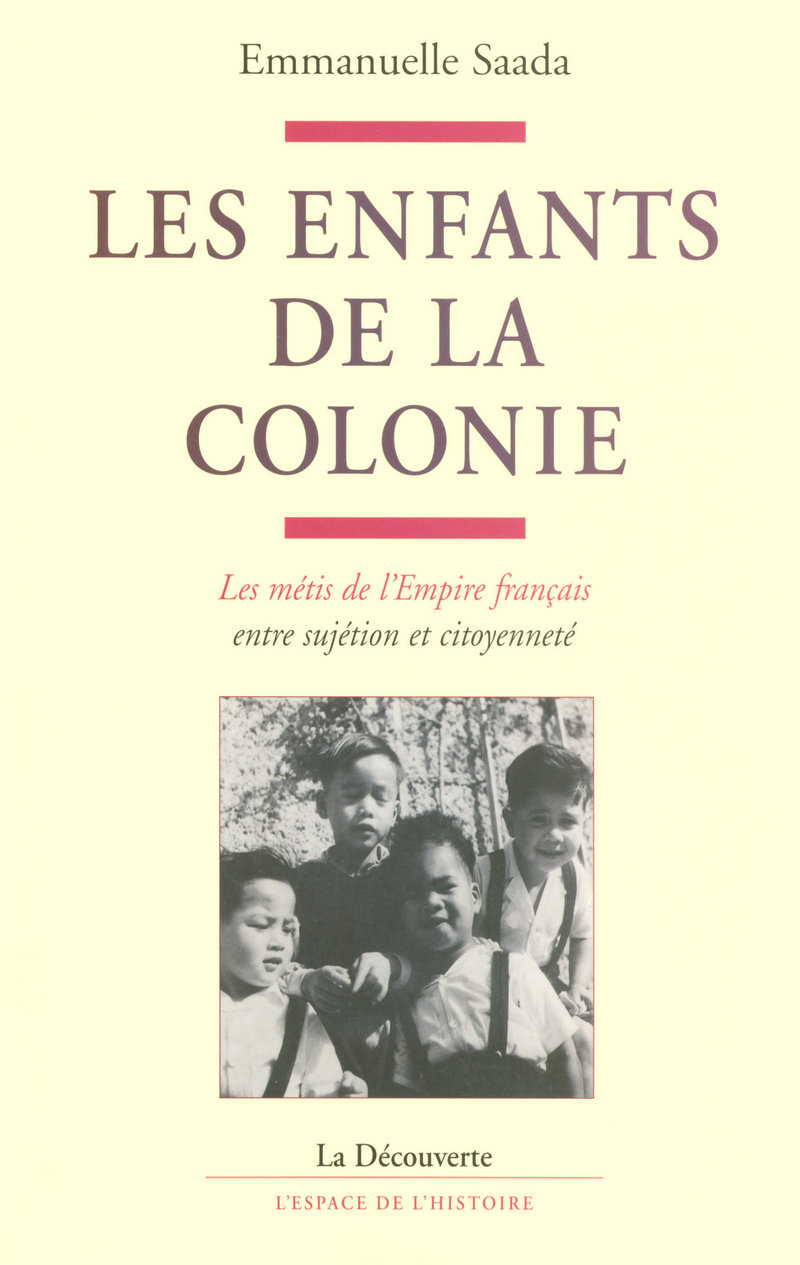Emmanuelle Saada. Empire’s Children: Race, Filiation, and Citizenship in the French ColoniesPosted in Africa, Anthropology, Articles, Book/Video Reviews, History, Media Archive on 2015-09-28 19:26Z by Steven |
Emmanuelle Saada. Empire’s Children: Race, Filiation, and Citizenship in the French Colonies
The American Historical Review
Volume 118, Issue 2
pages 468-470
DOI: 10.1093/ahr/118.2.468
Gary Wilder, Associate Professor of Anthropology
The Graduate Center, City University of New York
Emmanuelle Saada, Empire’s Children: Race, Filiation, and Citizenship in the French Colonies. Translated by Arthur Goldhammer. Chicago: University of Chicago Press. 2012. Pp. xv, 339. Cloth $81.00, paper $27.50, e-book $27.50.
In this carefully researched and sharply argued analysis of disputes over the status of abandoned mixed-race children (métis) in the French Empire, Emmanuelle Saada demonstrates how gendered racial logics came to subtend French republican law. Rather than seek to understand a supposed contradiction between metropolitan republicanism and colonial racism, Saada offers a persuasive account of France as an imperial republic organized partly around a form of republican racism that operated through families on embodied subjects. Drawing masterfully on archival history, legal scholarship, and political theory, she provides a welcome critique of works that treat colonial domination as mere violence as well as those that accept republican states’ own discourses about abstract universal legality being incompatible with racial particularity and concrete communities.
Saada begins with a political dilemma that was created for colonial administrators by the 1889 Nationality Law. It held that all children born on national territory to unknown parents were accorded French citizenship. Authorities feared that if this measure were to be applied automatically in the colonies, children whose filiation was uncertain and whose ways of life were more “native” than “French” would automatically become citizens. Alternatively, they worried that if this measure was ignored, biologically and culturally “French” children would be misclassified as natives and pose a potential threat to the colonial order. She argues that the entire system of colonial domination depended on social distance between “French” and “native” and legal distinction between “citizen” and “subject.” (The book provides an indispensable genealogy of these categories in the French Empire.) Administrators believed that immersion in the native milieu could lead métis to acquire dangerous social pathologies. Even worse was the fear that they could become “declassed”—socioculturally French but legally native subjects. This non-alignment of social identity and legal status risked undermining racial “dignity” and French “prestige” in the …
Read or purchase the review here.
